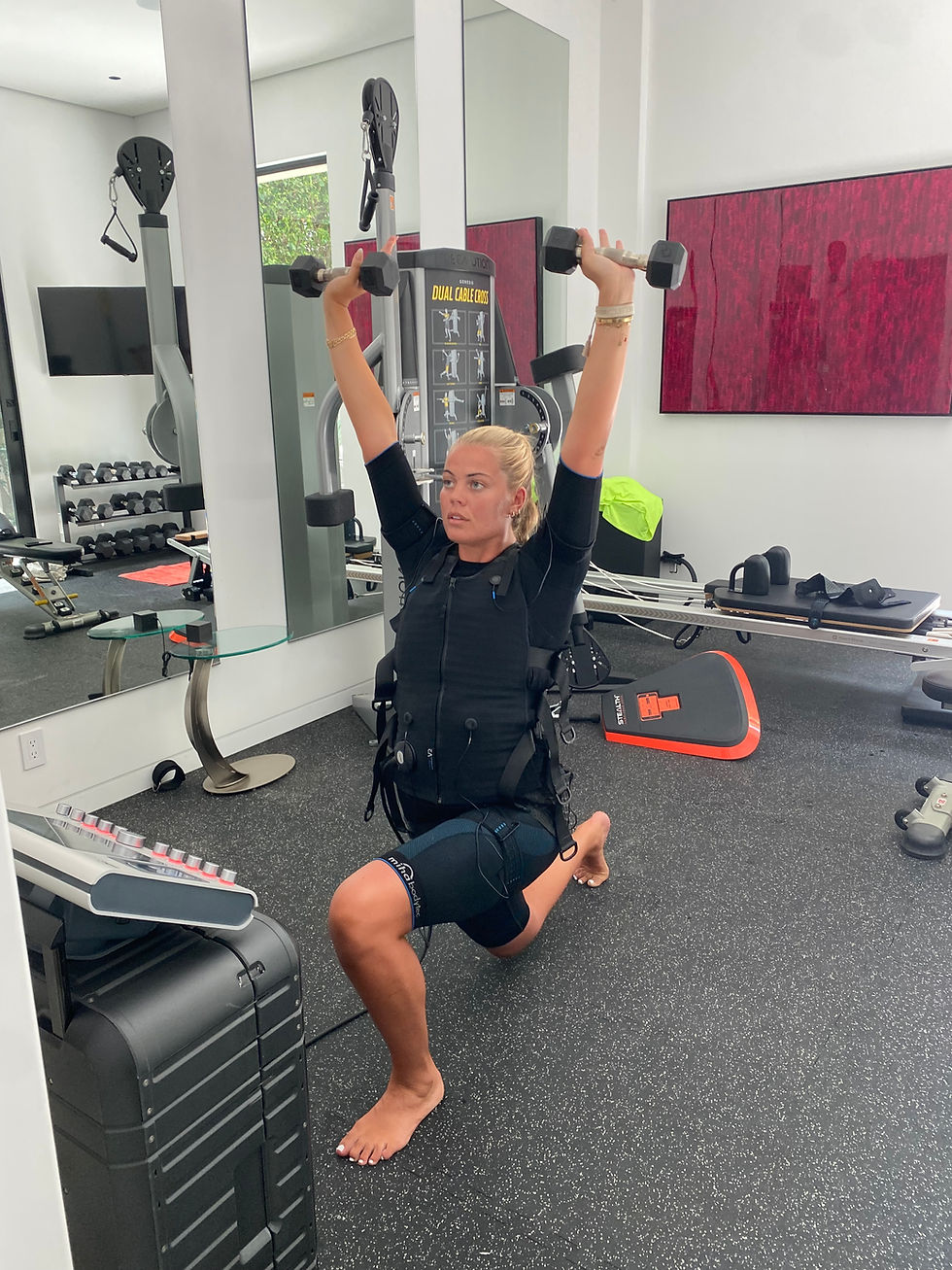Uncover the Secret: How Aging Leads to Vitamin Deficiencies and What You Can Do About It
- annamiduryan
- Apr 10
- 4 min read
Updated: May 7

As we get older, our bodies change in ways that can deeply impact our health. One major concern is vitamin deficiencies that can affect energy levels, immune function, and overall well-being. Understanding how aging contributes to these deficiencies is crucial for anyone who wants to maintain their health and vitality in their later years.
The Aging Process and Nutrient Absorption
With age, our digestive system tends to work less efficiently. For instance, stomach acidity decreases and digestive enzymes become less effective, impacting our ability to absorb essential vitamins and minerals effectively. Research shows that around 10-30% of older adults may struggle with vitamin B12 absorption, while about 60% of seniors have insufficient vitamin D levels.
Recognizing these changes allows us to adapt our diets, ensuring we get the nutrients we need as we age.
Common Vitamin Deficiencies in Older Adults
Older adults often face certain vitamin deficiencies that can lead to serious health issues. Here are some of the most prevalent ones:
Vitamin B12
Crucial for nerve health and red blood cell production, vitamin B12 deficiency is common among older adults. Due to reduced stomach acid, many cannot absorb B12 from food. An estimated 20% of older adults are affected, leading to anemia, cognitive decline, and potential neurological disorders.
Vitamin D
This vitamin is essential for bone health. However, skin produces less vitamin D as we age, and many older adults spend less time outside. Research indicates that 40% of older individuals are deficient in vitamin D, increasing their risk of osteoporosis and fractures.
Vitamin C
Critical for immune function and skin health, vitamin C intake often falls short among older adults. Low vitamin C levels can lead to weakened immunity, making infections more likely. Studies show that individuals aged 60 and over consume about 25% less than the recommended intake.
Folate
Folate supports red blood cell production and DNA synthesis. It's often deficient in older adults, potentially leading to anemia and cognitive decline. Approximately 10% of older adults do not receive the adequate daily intake of folate.
Recognizing Signs of Vitamin Deficiencies
Identifying the signs of vitamin deficiencies can help you combat them effectively. Keep an eye out for these symptoms:
Fatigue and Weakness: Constant tiredness, despite sleep, may indicate anemia due to vitamin B12 or iron deficiency.
Bone Pain or Weakness: Such symptoms might point to a lack of vitamin D or calcium.
Poor Wound Healing: Slow healing times could reflect low vitamin C levels.
Mood Changes: Low levels of B vitamins can lead to mood swings and symptoms of depression.
Simple Dietary Adjustments to Combat Deficiencies
Making easy changes to your diet can lead to significant health benefits. Here are some straightforward recommendations:
Diversify Your Diet
Eat a variety of foods, including fruits, vegetables, whole grains, and proteins. Lean meats, dairy products, eggs, and fortified cereals are rich sources of vitamins B12 and D. Aim for at least five servings of fruits and vegetables daily to boost your nutrient intake.
Consider Supplements
Consult with your doctor about the need for vitamin and mineral supplements. While a balanced diet is vital, multivitamins or specific nutrient supplements can help fill nutritional gaps. For example, studies suggest that those who take vitamin D supplements can raise their levels by 30%.
Stay Hydrated
Drinking enough fluids is essential for overall health and can help alleviate the symptoms of deficiencies. Aim for at least 8 cups of water daily. Herbal teas and broths are also great options.
Monitor Your Health
Regular health check-ups are essential as you age. Blood tests can detect vitamin levels and deficiencies early. Early intervention can lead to better health outcomes.
Lifestyle Choices Impacting Vitamin Status

Beyond diet, several lifestyle factors can affect your vitamin levels. Here are a few to consider:
Physical Activity
Staying physically active can enhance your overall health and improve nutrient absorption. Weight-bearing exercises, such as walking or light lifting, can boost bone health and aid vitamin D synthesis. Aim for at least 150 minutes of moderate-intensity activity each week.
Sun Exposure
Moderate sun exposure is key for producing vitamin D. Try to get about 15-30 minutes of direct sunlight several times weekly, depending on your skin type. Always balance sun exposure with skin protection to avoid UV damage.
Avoiding Alcohol and Smoking
Both alcohol and smoking can interfere with nutrient absorption. Reducing or eliminating these habits can lead to improved health outcomes and better nutrient levels.
Taking Charge of Your Health
Aging is a natural part of life, but it doesn't have to lead to debilitating vitamin deficiencies. By understanding the key vitamins and making informed dietary and lifestyle choices, you can maintain your health as you grow older. Regularly tracking your vitamin levels combined with a nutrient-rich diet can result in a healthier, more vibrant life. Equip yourself with this knowledge and take charge of your well-being for a fulfilling life at any age.




Comments